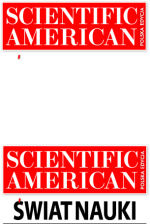 2006
2006
 2008
2008
 2010
2010
 2012
2012
 2014
2014



 |
Nature of Madagascar – see, touch, help
‘Tropical biology and nature conservation in Madagascar’
Małgorzata Gazda – author of photograph and project manager Crouching Lizard, Hidden Dragon |

|
Description popularizing the research project
As historical sources claim it, Polish fauna and flora could have been enriched with baobabs, lemurs, chameleons, relatively big for an insect, Madagascar hissing cockroaches and many other species with names an ordinary Pole has never heard of. This sudden increase in biodiversity could be neither a result of continental drift that would carry our piece of Europe near Africa nor Africa being transported to the Baltic Sea. It would have been possible only if an interwar period political concept of France giving Madagascar to Poland as an overseas territory had succeeded. However, the concept was never realised. Fortunately, the unique fauna and flora of the fourth biggest island of the world remained the land of native Malagasy people. In the tropical climate, in the mountain massifs, in the plains and deserts live, unknown outside the island, fossas, brightly coloured vangas, indris with fluffy ears and nocturnal tenrecs. They and many other animals and plants of Madagascar contribute to the unique yet endangered biodiversity of the island. Geographical isolation of the land makes the nature clearly different. The same isolation means that the loss of any element of the biodiversity, through extinction of any of the species, will mean an irreparable loss for both Madagascar and the whole world. Seventeen national parks, some of which are in the UNESCO World Heritage list, protect the unique nature and landscapes against numerous internal and external threats. The biggest one is increasing population and developing agriculture. With the increase in agricultural areas the famous thorn forests shrink. The World War 2 finished the era of colonial ambitions. Now the nature of Madagascar inspires awe and admiration, and we also do care about it. We get involved in projects aimed at protecting natural resources of the island – an overseas territory of the rest of the world.
Abstract
Tropical Biology Association is an organization whose main aim is to create cooperation as well as knowledge and skills transfer between Europe and Africa. It is crucial to create the leaders of conservation, especially in developing countries, for example in Africa. It is one of the goals of annual TBA course in Madagascar (but also in Tanzania and Uganda). With other 17 students from Europe and Africa, I participated in different classes about biology and nature conservation. During my stay, I was getting familiar with the lemur's world, huge cockroaches and several species of baobabs. Madagascar is an island which should be visited by each biologist at least once in their life. Kirindy, the reserve situated on the west coast is a dry deciduous forest, yet in spite of that, full of life. One of the most endangered species is the giant jumping rat (Hypogeomys antimena). Among thousands of endemic organisms, it is a big achievement to find non-endemic species. Surprisingly Madagascar is a quite big land, with really impressive biodiversity. The final of the course resulted in a short research project. I worked with Carola Poley and Cheryl Small on the project about correlation between antlions larvae location and the population density of their prey (ants). The antlions are insects which lay eggs in sand, where a larva develops and creates a pitfall. The prey comes to the trap and cannot escape, because the larva is digging out the sand. According to our expectations the distribution of traps was correlated with the distribution of ants, especially medium and big ones, the smallest ants appeared not to be a suitable food source.
Patronat honorowy
Leszek Jodliński
Dyrektor Muzeum Śląskiego w Katowicach
Zygmunt Łukaszczyk
Wojewoda Śląski
Jan Malicki
Biblioteka Śląska
Piotr Uszok
Prezydent Katowic
Adam Matusiewicz
Marszałek Województwa Śląskiego














